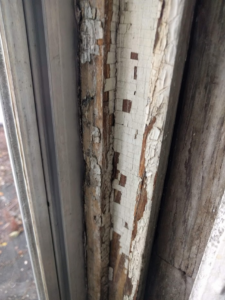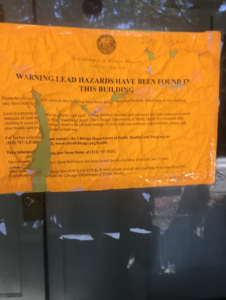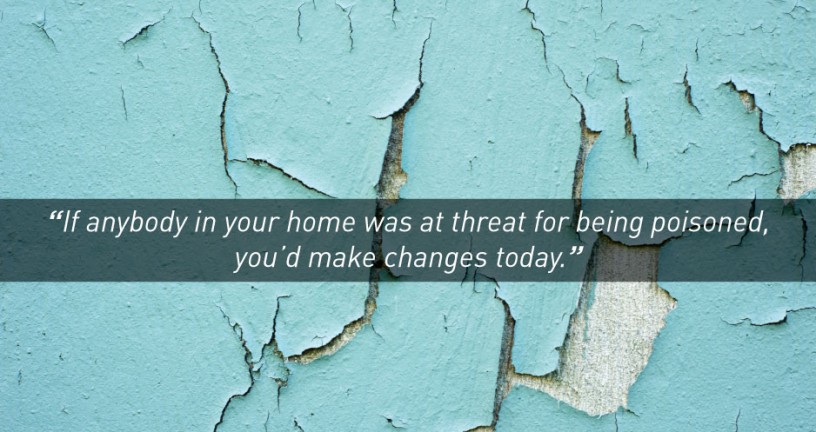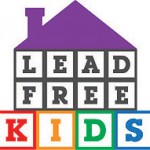Lead poisoning has been in the headlines ever since the Flint water crisis brought national attention to the problem. Chicago is grappling with its own lead poisoning crisis, which is hitting our youngest residents the hardest. Imagine if you found out your child had lead poisoning. No parent wants to receive that type of news. Now imagine that your two youngest children – twins – have elevated lead blood levels.

This is how we first met Ms. “W”. After a local health clinic discovered her children’s elevated lead blood levels, Ms W contacted MTO, and a Healthy Homes organizer conducted a visual inspection at her home. The deteriorating plaster walls had started to disintegrate. Half of the window frames had chipped, peeled, and cracked paint. A subsequent inspection by the Chicago Department of Public Health confirmed the assessment – there were high levels of lead in the entire unit.
Over the course of the next few weeks, MTO’s Healthy Homes Organizer provided a letter of support, collected visual documentation of the unit conditions, and shared resources for emergency housing assistance. While Ms. W. explored her options she received more devastating news, her three other children – all under the age of six – had also been poisoned. Now, her landlord was trying to evict Ms W and her family. When an unlicensed worker attempted to remediate the lead without proper safety protocols in place, MTO was able to get a city inspector to stop the illegal abatement, which was further harming her children. Ms W was partnered with a pro-bono lawyer to fight the eviction. While Ms. W. awaits to hear about a new apartment to move to she has expressed immense gratefulness for MTO’s assistance in her advocacy for safe and healthy housing.
But Ms. W wouldn’t have to experience any of this if Chicago had a proactive rental inspection program. The Chicago Healthy Homes Inspection Program (CHHIP) is a campaign lead by MTO to create just that. Hazards like lead, mold, pest infestations, and other asthma triggers can and should be caught before they become a crisis. The current building inspection system is a complaint-based service provided by city inspectors. This means that tenants hold the burden of requesting proper maintenance, property owners can neglect buildings without regular code enforcement, and families are forced to relocate or live with egregious conditions affecting their health. In today’s economy, moving is not always a viable option. We believe that the City should initiate a proactive inspection program that could identify home-based health hazards before they poison our children.

Chicago’s lead poisoning crisis is silently harming our youngest and most vulnerable residents. The Center for Disease Control (CDC) says, “no levels of lead is safe for anyone”. The CDC wants to eliminate lead poisoning in children by the year 2020. If Chicago wants to get serious about achieving this goal, we need to address the substandard housing that exists in our city and make lead prevention and remediation a priority. Our children’s lives are at stake.
MTO is excited to announce our continued partnership with the Chicago Community Trust through a 2nd year of being awarded CCT’s Housing + Health grant. Because of our supporters we are able to assist more Chicago renters and children with housing-health issues and organize for equitable solutions and policies that promote safe, healthy, and decent affordable housing for all. After all HOUSING is a HUMAN RIGHT!
If you or someone you know is in need of information about their rights as a renter or in need of assistance from our Healthy Homes Team contact MTO’s Tenants’ Rights Hotline, M-F; 1pm-5pm at 773-292-4988 or visit our offices M-Th 1pm-4:30pm.

 “Oftentimes landlords, instead of wanting to get rid of the lead, want to get rid of the tenant,” he continued. That’s a particular problem in private housing, where the protections against wrongful evictions are weaker. Some cities and states have instituted proactive rental inspection programs, which require housing to be checked at regular intervals, rather than waiting for a resident to make a complaint. That not only means that lead hazards are hopefully abated before poisoning becomes an issue, but that tenants who might fear taking action against landlords don’t have to shoulder the burden.
“Oftentimes landlords, instead of wanting to get rid of the lead, want to get rid of the tenant,” he continued. That’s a particular problem in private housing, where the protections against wrongful evictions are weaker. Some cities and states have instituted proactive rental inspection programs, which require housing to be checked at regular intervals, rather than waiting for a resident to make a complaint. That not only means that lead hazards are hopefully abated before poisoning becomes an issue, but that tenants who might fear taking action against landlords don’t have to shoulder the burden.
